Want to be seen here?
Connect your company to the marketplace for free.
Time for a display campaign? Ocast has gathered thousands of solutions in one place so you can get started quickly. Fill in the form and start receiving offers for campaign proposals.
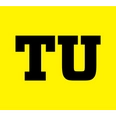
TU tilbyr et bredt utvalg av reklamemuligheter. Annonser med innholdsmarkedsføring, display eller event for å nå folk som er interessert i teknologi....
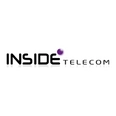
Annonser med Inside Telecom for å nå personer som er ansatt eller interessert i telekombransjen....
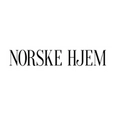
Norske Hjem er et magasin for folk med interesse for boliger og interiør....
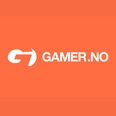
Annonser med Gamer for å nå kvinner og menn som er forpliktet til e-sport og spill....
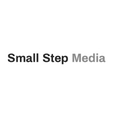
Small step media hjelper titler som Avfallsbransjen och Cnytt med annonsering....
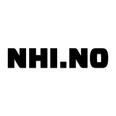
NHI er Skandinavias største helsenettsted. Annonser med NHI for å nå både den norske befolkningen som er på jakt etter helseinformasjon, men også folk som jobber med helse....
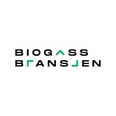
Nettstedet for Biogassbransjen og den voksende grønne næringen....
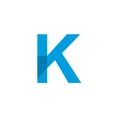
Annonser med KarriereStart for å nå både arbeidsgivere og jobbsøkere....
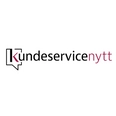
Kundservicenytt er for ledere og ansatte innenfor kundeservicefunksjonen....
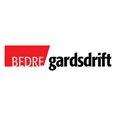
Bedre Gardsdrift tilhører Ask Media. Annonser med Bedre Gardsdrift for å nå personer med interesse for teknologi, bygg og økonomi....
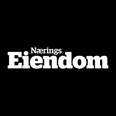
NæringsEiendom hjelper bedrifter med å finne veien i jungelen av leiemarkedet og næringslokaler....
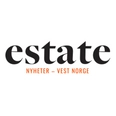
Estate VestNyheter er mediet som når beslutningstakere i eiendoms- og byggebransjen....
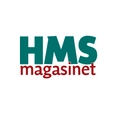
HMS-magasinet er for personer som jobber med og for helse, miljø og sikkerhet i privat og offentlig virksomhet. Annonser via nett, magasin, mobil eller nyhetsbrev....
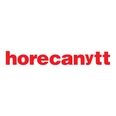
Horecanytt er bladet for folk som jobber innen hotell, restaurant, kafé og catering. Annonser via web eller magasin....
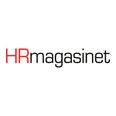
Annonser med HRmagasinet for å nå en person som jobber med utvikling av mennesker og organisasjoner, enten via nett eller magasin....
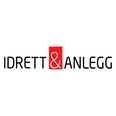
Idrett Anlegg er et nettsted og et magasin. Annonser her for å nå folk med interesse for sport, helse og anlegg....
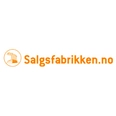
Salgsfabrikken selger annonser til noen av Norges mest populære forlag, aviser og nettsider....
Display advertising, often referred to as banner advertising, involves visual ads placed on various websites, in contrast to text-based search ads that appear in search results on platforms like Google.
While search ads are focused on direct response, display ads aim at building brand awareness through engaging visual content like images or animations. Display advertising also enables retargeting, where ads are redirected to users who have previously visited your website, helping to keep the brand fresh in mind.
With opportunities to measure campaign performance and customize design and target audience, display advertising offers an attractive strategy for brands looking to enhance their online presence and effectively engage their target audiences.
The most effective formats and sizes for display ads vary depending on the platform and target audience, but here are some popular options:
Leaderboard (728x90 px): Positioned at the top of the page, this ad size captures visitors' attention right away.
Medium Rectangle (300x250 px): This size is flexible and can be placed in sidebars or embedded within content.
Large Rectangle (336x280 px): A larger variant of the Medium Rectangle that offers more visible space.
Wide Skyscraper (160x600 px): Often used in sidebars, offering a long, vertical ad space.
Mobile Leaderboard (320x50 px): Optimized for mobile devices and often placed at the top or bottom of the screen.
Consider adhering to industry standards and adapting ad format and size to the specific platform and your target audience. However, the emphasis should be on having well-thought-out content that engages and is relevant to your target audience with clear "Call to Actions" (CTA) to encourage clicks and conversions.
Measuring the effectiveness of your display advertising campaigns is crucial for evaluating the results of your campaign and for fine-tuning future marketing strategies. A first step could be to look over the Click-Through Rate (CTR), which represents the number of clicks your ad receives per view, providing an indication of the ad's engagement level. It is also important to track the conversion rate, which shows how many clicks are converted into desired actions such as sales or leads. Cost Per Conversion is another key indicator that helps you understand the cost-effectiveness of your campaign.
It may also be good to look at the impression rate, that is, how many times the ad has actually reached out and been displayed for brand-building purposes.
One of the major advantages of this type of advertising is its ability for audience targeting, where ads can be directed based on demographics, behavior, and retargeting, enabling a more personalized advertising experience. Moreover, with the use of various analytical tools, it becomes easy to track and measure the campaign's effectiveness by observing data on clicks, conversions, and views, which provides valuable insights.
However, display advertising also has its downsides. Ad blocking is one of the major challenges, where users can choose to block display ads, which in turn reduces the reach and effectiveness of your campaign. Ad fatigue is another downside, where ads that are shown too often can become irritating for the users, leading to decreased engagement and negative brand associations. Despite the ability for audience targeting, audience dilution can be a challenge if precise targeting is not used, which potentially leads to wasted marketing expenses. Additionally, the cost of display advertising can become significant, especially if the campaign is not well optimized to achieve desired results.
The cost of display advertising can vary based on several factors such as website, ad format, and target audience. Besides that, there are different pricing structures one can base on to adjust the cost according to the goal at hand. Below we list different pricing options for display advertising.
CPM (Cost Per Mille or Cost Per Thousand Impressions):
The price for 1000 views of your ad.
Often used for campaigns aimed at increasing brand awareness.
CPC (Cost Per Click):
The price you pay for each click your ad receives.
Used when the goal is to drive traffic to a website or increase interaction.
CPA (Cost Per Acquisition or Cost Per Action):
The price for each specific action or execution, such as a purchase or lead generation, that arises via your ad.
Used when the goal is conversions rather than just views or clicks.
CPL (Cost Per Lead):
The price for each lead generated through your ad.
Used in B2B marketing or for products/services with longer sales cycles.
CPV (Cost Per View):
The price for each viewing of a video ad.
Often used for video-based advertising campaigns.
Each pricing structure suits different goals and campaign types, and choosing the right pricing structure can help maximize the ROI for your display campaign.
Connect your company to the marketplace for free.
No commitments.